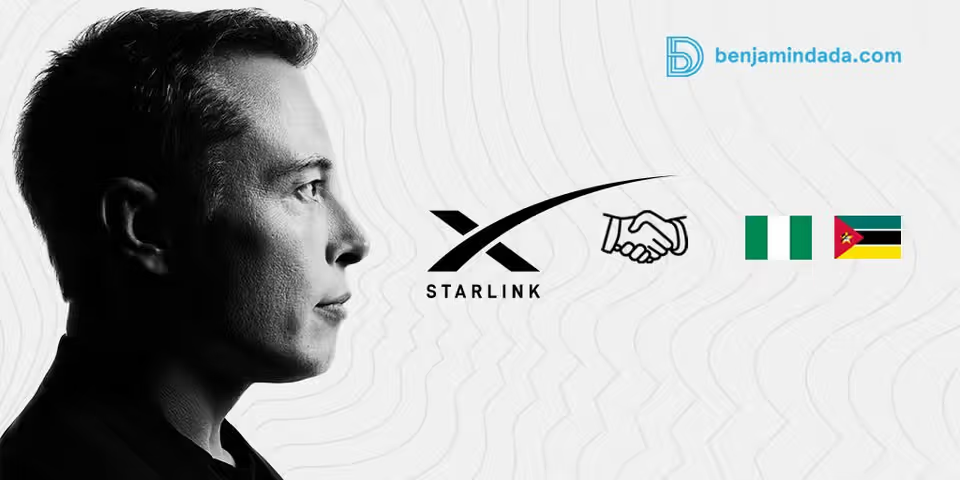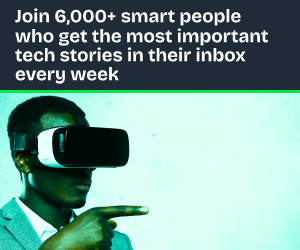Elon Musk announced via a tweet that Starlink has obtained licenses from Nigeria and Mozambique. Here’s how it can impact Nigeria’s economy.
Since its invention, the internet has become the mainstay and key driving force of any thriving economy. The internet has transformed how business is conducted and with its help, the global marketplace has become more diverse, connected, inclusive, and accessible.
To freely surf the internet, the United States’ Federal Communications Commission recommends that broadband (another term for high-speed internet access) should be at least 25 Mbps download speed and 3 Mbps upload speed.
But where does Nigeria and the rest of sub-Saharan Africa stand in this conversation?
The average download speed for mobile internet sub-Saharan Africa according to GSMA is at 9 Mbps while the fastest median download speed for fixed broadband between January and March 2022 in Nigeria is 21.34 Mbps.
This explains why some applications, sites or devices fully operational in other parts of the world cannot be accessed or used in the region.
Introducing Elon Musk’s Starlink
On the 27th of May, Elon Musk announced through a tweet that Space X’s Starlink is coming to Nigeria and Mozambique
Starlink approved by Nigeria & Mozambique https://t.co/Q1VvqVmJ2i
— Elon Musk (@elonmusk) May 27, 2022
Starlink, a satellite internet constellation operated by SpaceX, provides satellite internet access coverage to 32 countries. The download speed of Starlink which is at 100 Mbps is nearly five times higher than the highest median speed for Nigeria.
Nigeria gave Starlink two licenses that took effect on May 1 and will expire in 2027 and 2032. The service is expected to go live sometime between July and September this year.
The Internet service provider will solve the problem of speed and access, especially in rural areas. According to its website, “Starlink is ideally suited for areas where connectivity has been unreliable or completely unavailable.”
The impact of a fast internet speed will be massive for any economy.
Teachers in Benue can create educational videos and students in Katangora or anywhere else in the country would be able to stream and watch live or download at an incredibly fast pace.
Startups, organisations, and emerging Unicorns would be able to access faster broadband to build products and services that would not only be valuable in Africa but would be able to compete with global brands. Social media platforms, teamwork hubs, or chatbots are some of the solutions that emerged because of internet technology.
A good internet connection allows you to connect to your corporate network from anywhere and instantly send the necessary information. This accelerates your company’s performance and speeds up the business processes.
Starlink’s entrance into Nigeria would also create more job opportunities for youths in both urban and rural areas. Fast and affordable internet will enable Nigerian youths to remotely work for startups all around the globe.
Fast internet speed would also facilitate telehealth in the country. Doctors in Lagos would be able to connect to patients in Kajola to provide health consultancy or supervise a major surgical operation real-time. Health tech mobile applications will be used by more people.
Ideally, Starlink (as all satellite internets) is suited for areas where internet connectivity has been unstable or utterly unavailable. Once it goes live, underserved communities would be able to access broadband internet service. This will expose the rural and remote regions to developments that were earlier attainable in urban regions.
Affordability
Starlink’s current price, which it reviewed in March this year stands at $$110 per month, up from the original rate of $99 for base plan. Additionally, the one-time hardware installation fee for Starlink’s receiver dish is now $599, up from $499. The premium plan costs $2500 for installation and $500 for monthly subscriptions.
Compared to the monthly living wage of average Nigerians which is $111 for individuals and $354 for families, this might be a little bit high. To make the broadband accessible to these underserved areas, Starlink might have to use a different pricing strategy like DSTV subsidised GOTV and Netflix offered lower prices to penetrate the Nigerian market.
The future of internet connectivity is bright
Considering that Starlink was meant to serve rural and underserved areas then it might be unfeasible to expect a swift internet improvement. But Nigerians should be optimistic about the future. When high-speed internet comes into an area, change doesn’t happen overnight.
The positive effects of these new technologies may be hard to see right away but they will be evident soon. As more and more businesses have access to faster internet, whole verticals of the economy will transform.
Broadband has the power to spur economic growth by creating efficiency for individuals, businesses, and societies. It opens up possibilities for more advanced online services, smarter utility services, telecommuting, and even WEB 3.0.
Combined with the launch of Equiano subsea internet cable in April 2022, the future of internet connectivity in Nigeria and Africa will only keep getting better. Internet prices will drop, connectivity will improve and users will be happier for it.









